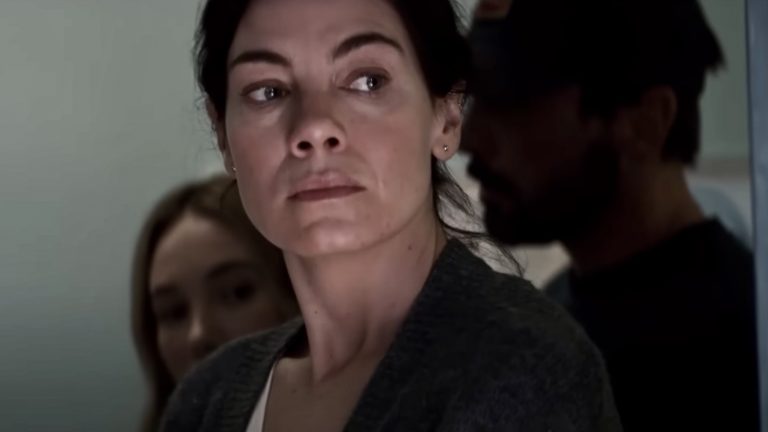The Norwegian director, Ellen Ugelstad’s brother, has been stuck lifelong in a psychiatric facility with no escape in sight. There seems to be no alternative, or at least that’s how the country’s administration would like everyone to believe. Coercion has been aggressively promoted as the only norm in handling psychiatric patients, putting them in straps and dumping them in institutions, along with stripping them of legal rights. Ugelstad trains her firm, unwavering gaze on the fissures in this system, all its impositions that frequently deny patients their voluntary wishes. Through the diverse arguments interspersed in “The Recovery Channel,” one bold suggestion loudly rings through: Is any kind of coercion helpful or regenerative at all?
Early in the film, Ugelstad interrupts and introduces herself as the director. She lays out the strategies and techniques that she’s looking to implement. Adding how she wishes to fuse genres and styles, the cast has been culled from people linked to psychiatry in some way or the other. Therefore, every person appearing in the film has his/her own stakes and agendas in the central discursive conversation that gradually deepens and complicates. She sets up a fictional newsroom that invites various stakeholders, including lawyers, formerly incarcerated patients, and doctors, along with an editorial office that also incorporates the patients’ relatives. While the form keeps gliding between documentary and fiction, Ugelstad also makes a definitive, clear assertion: “The images are reality”
This designed hybridity enables the film to resist the usual, lazy slotting of its subjects along easy binaries. They are much more than the polarised stories with which they are represented in the media. They long for a portrayal that assigns them either in a splashy success story or a tragic one. In a telling scene, they discuss its implications. This simplistic slotting is engineered to prevent a holistic relatability with their everyday fears, anxieties, and dreams as it then pushes them out onto the fringes of society where their responsibility can be fully abandoned at the door of a deeply questionable system.

The filmmaker’s disavowal of singular fixities empowers the patients with agency and all the fundamental rights that are wrestled away from them under the excuse of their “condition.” There’s a constant striving on the filmmaker’s part to do away with that distance that gets erected between the patients and the rest of society, replacing alienation with the warmth and kindness of human connection. Through the staged recreations, debates among authorities open up on whether they acted too quickly in forcing straps on a patient seemingly uncontrollably. Should they have waited a little longer before making that call? They ponder.
As we follow the news anchor Randi’s off-air struggles with her sister, Ylva, who suffers from extreme paranoia and leads an isolated life, Ugelstad also simultaneously engages with broader, sweeping histories of institutions, the regime of forced medication and incarceration. Her filmic approach keeps shifting between the intimate and the macrocosmic. The disavowal of singular fixities gives a generous expansiveness of reach and vision to the film as it interrogates all the gaping holes and specious arguments that are used to prop up the only available treatment for patients, which is intrinsically anti-choice.
What is also admirable is the film’s equal emphasis on the patients’ families and next of kin, who have to make the difficult, ugly decision to give away their loved ones. The guilt of the decision and the inevitable resentment that follows are so tremendous they can completely take over their lives and drown them in endless misery if they are not wary. That they, too, should be vigilant in their own self-care is urgently reiterated.
This brave, self-reflexive film has a remarkable skill in juggling the specific and circumstantial with the overarching and historical. A continuous, rigorous juxtaposition of these parallelly operating modes of inquiry lends the film its emotion and heft. It can be terribly tough and brutally grueling to watch. There’s a devastating moment when a girl who had experienced the worst of coercive institutionalization recounts it. The moment ripped me to shreds. The anger and immediate appeal of “The Recovery Channel” are impossible to look away from.




![John Wick: Chapter 3 – Parabellum [2019] Amazon Review : Brutal and Beautiful](https://79468c92.delivery.rocketcdn.me/wp-content/uploads/2019/05/john-wick-review-high-on-films-768x432.jpg)

![Wait Until Dark [1967]: 50 Years Later, Still As Effective](https://79468c92.delivery.rocketcdn.me/wp-content/uploads/2017/10/HIGH_ON_FILM_WAIT_UNTIL_DARK-1-768x435.png)
![David Attenborough: A Life on Our Planet [2020] Netflix Review – A Clarion Call to Save the World](https://79468c92.delivery.rocketcdn.me/wp-content/uploads/2020/10/David-Attenborough-A-Life-on-Our-Planet-Netflix-1-highonfilms-768x384.jpg)
